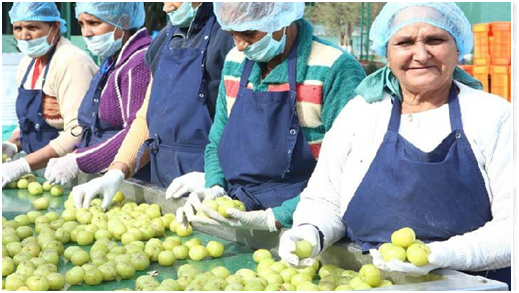PSCST has been taking various initiatives for promoting S&T interventions at grass root level for the socio- economic development of the rural population especially in lower shivalik foothills (Kandi area) of the State since last two decades.

Talwara Block of Hoshiarpur District falls completely in kandi area, which has been identified as one of the eight most degraded rain-fed agro ecosystems and is endemic zone. Although main source of livelihood of local population is income through agriculture however, it is quite less as farmers have very small land holdings and the area being mainly rain-fed, the water is scarce. Moreover, as Lantana weed has heavily infested the natural pastures thereby affecting the availability of green fodder, the attack of stray animals on cultivated fields is a major problem in this region. Hence, agricultural income is too less to sustain the livelihood of farming community, thereby leading to serious problem of migration of rural youth to urban areas for better employment avenues.
The kandi region is however rich in naturally growing bio-resources. In order to optimally utilize these bio resources for the socio- economic empowerment of local population especially women in the region, PSCST conceptualized setting up of Bio resource Processing Facility at Talwara for demonstrating value-addition of local bio resources which were otherwise yielding negligible economic benefits to the local population. The initiative taken up with the support of Department of Biotechnology, Government of India was made sustainable by involving a local cooperative society – M/s Unati Cooperative Marketing cum-Processing Society Ltd.
The state-of-the-art Processing Facility set up is a true example of women leadership and empowerment, various operations of which being run by about 300 local women. The local resources like Amla, Karela, Turmeric, Black carrot, Jamun, Giloy, Moringa etc. are being converted into value added products which have found market in both domestic and global arena. This ISO 22000:2005 certified facility, having HALAL & Organic Certifications (India Organics, EU & USFDA) and Export License is presently processing around more than 1000 metric ton of local bio-resources annually and generating annual employment of more than 2 lac mandays for local community. This project, which started with utilization of single bioresource (wild Amla) and with a small grant available from DBT-GOI only till 2007, is successfully operative since then on self-sustainable basis and over the years has not only increased its processing capacity manifolds but has also expanded its resource base and products.







